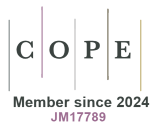Determining value in the treatment of activated PI3Kδ syndrome in Spain: a multicriteria decision analysis from the perspective of key stakeholders
DOI:
https://doi.org/10.33393/grhta.2024.3041Keywords:
Activated phosphoinositide 3-kinase (PI3K)δ syndrome (APDS), Decision-making, Multicriteria decision analysis (MCDA), Rare diseaseAbstract
Introduction: Activated phosphoinositide 3-kinase (PI3K)δ syndrome (APDS) is an ultra-rare inborn error of immunity (IEI) combining immunodeficiency and immune dysregulation. This study determined what represents value in APDS in Spain from a multidisciplinary perspective applying multicriteria decision analysis (MCDA) methodology.
Methods: A multidisciplinary committee of nine experts scored the evidence matrix. A specific framework for orphan drug evaluation in Spain and the weights assigned by a panel of 98 evaluators and decision-makers was used. Re-evaluation of scores was performed.
Results: APDS is considered a very severe disease with important unmet needs, including misdiagnosis and diagnostic delay. Current management is limited to treatment of symptoms with off-label use of therapies supported by limited evidence. Therapeutic benefit is partial, resulting in limited disease control. Haematopoietic stem cell transplantation (HSCT), the only potential curative alternative, is restricted to a reduced patient population and without evidence of long-term efficacy or safety. All options present a limited safety profile. Data on patients’ quality of life are lacking. APDS is associated with high pharmacological, medical and indirect costs.
Conclusions: APDS is considered a severe disease, with limited understanding by key stakeholders of how treatment success is assessed in clinical practice, the serious impact that has on patients and the associated high economic burden. This study brings to light how MCDA methodology could represent a useful tool to complement current clinical and decision-making methods used by APDS experts and evaluators.
References
- Vanselow S, Wahn V, Schuetz C. Activated PI3Kδ syndrome – reviewing challenges in diagnosis and treatment. Front Immunol. 2023;14:1208567. https://pubmed.ncbi.nlm.nih.gov/37600808/ https://doi.org/10.3389/fimmu.2023.1208567 DOI: https://doi.org/10.3389/fimmu.2023.1208567
- Maccari ME, Wolkewitz M, Schwab C, et al; European Society for Immunodeficiencies Registry Working Party. Activated phosphoinositide 3-kinase δ syndrome: update from the ESID Registry and comparison with other autoimmune-lymphoproliferative inborn errors of immunity. J Allergy Clin Immunol. 2023;152(4):984-996.e10. http://www.jacionline.org/article/S0091674923008126/fulltext https://doi.org/10.1016/j.jaci.2023.06.015 PMID:37390899 DOI: https://doi.org/10.1016/j.jaci.2023.06.015
- Elkaim E, Neven B, Bruneau J, et al. Clinical and immunologic phenotype associated with activated phosphoinositide 3-kinase δ syndrome 2: a cohort study. J Allergy Clin Immunol. 2016;138(1):210-218.e9. https://pubmed.ncbi.nlm.nih.gov/27221134/ https://doi.org/10.1016/j.jaci.2016.03.022 PMID:27221134 DOI: https://doi.org/10.1016/j.jaci.2016.03.022
- Coulter TI, Chandra A, Bacon CM, et al. Clinical spectrum and features of activated phosphoinositide 3-kinase δ syndrome: a large patient cohort study. J Allergy Clin Immunol. 2017;139(2):597-606.e4. https://doi.org/10.1016/j.jaci.2016.06.021 PMID:27555459 DOI: https://doi.org/10.1016/j.jaci.2016.06.021
- Peshko D, Kulbachinskaya E, Korsunskiy I, et al. Health-related quality of life in children and adults with primary immunodeficiencies: a systematic review and meta-analysis. J Allergy Clin Immunol Pract. 2019;7(6):1929-1957.e5. http://www.jaci-inpractice.org/article/S2213219819301795/fulltext https://doi.org/10.1016/j.jaip.2019.02.013 PMID:30797077 DOI: https://doi.org/10.1016/j.jaip.2019.02.013
- Badia X, Gil A, Poveda-Andrés JL, Shepherd J, Tort M. Analysing criteria for price and reimbursement of orphan drugs in Spain. Farm Hosp. 2019;43(4):121-127. https://www.revistafarmaciahospitalaria.es//es-analysing-criteria-for-price-reimbursement-articulo-S1130634323002088 PMID:31276443
- Gilabert-Perramon A, Torrent-Farnell J, Catalan A, et al. Drug evaluation and decision making in Catalonia: development and validation of a methodological framework based on multi-criteria decision analysis (MCDA) for orphan drugs. Int J Technol Assess Health Care. 2017;33(1):111-120. https://doi.org/10.1017/S0266462317000149 PMID:28434413 DOI: https://doi.org/10.1017/S0266462317000149
- Marsh K, Ijzerman M, Thokala P, et al. Multiple criteria decision analysis for health care decision making – emerging good practices: Report 2 of the ISPOR MCDA Emerging Good Practices Task Force. Value Heal [Internet]. 2016 Mar 1 [cited 2023 Dec 18];19(2):125-137. http://www.valueinhealthjournal.com/article/S1098301515300152/fulltext DOI: https://doi.org/10.1016/j.jval.2015.12.016
- Thokala P, Devlin N, Marsh K, et al. Multiple criteria decision analysis for health care decision making – an introduction: Report 1 of the ISPOR MCDA Emerging Good Practices Task Force. Value Heal [Internet]. 2016 Jan 1 [cited 2023 Dec 18];19(1):1-13. http://www.valueinhealthjournal.com/article/S1098301515051359/fulltext
- Badia X, Chugani D, Abad MR, et al. Development and validation of an MCDA framework for evaluation and decision-making of orphan drugs in Spain. Expert Opin Orphan Drugs. 2019;7(7-8):363-372. https://doi.org/10.1080/21678707.2019.1652163 DOI: https://doi.org/10.1080/21678707.2019.1652163
- Badia X, Calleja M, Mirco A, Poveda J, Gil A. HT6 – Do Spain and Portugal evaluators and decision makers give the same importance to evaluation criteria of innovative medicines? Value Heal [Internet]. 2018 Oct 1 [cited 2023 Dec 18];21:S9. http://www.valueinhealthjournal.com/article/S1098301518333527/fulltext DOI: https://doi.org/10.1016/j.jval.2018.09.052
- Maccari ME, Abolhassani H, Aghamohammadi A, et al. disease evolution and response to rapamycin in activated phosphoinositide 3-kinase δ syndrome: the European Society for Immunodeficiencies-Activated Phosphoinositide 3-Kinase δ Syndrome Registry. Front Immunol. 2018;9:543. https://doi.org/10.3389/fimmu.2018.00543 PMID:29599784 DOI: https://doi.org/10.3389/fimmu.2018.00338
- Dimitrova D, Nademi Z, Maccari ME, et al. International retrospective study of allogeneic hematopoietic cell transplantation for activated PI3K-delta syndrome. J Allergy Clin Immunol. 2022;149(1):410-421.e7. https://doi.org/10.1016/j.jaci.2021.04.036 PMID:34033842 DOI: https://doi.org/10.1016/j.jaci.2021.04.036
- Okano T, Imai K, Tsujita Y, et al. Hematopoietic stem cell transplantation for progressive combined immunodeficiency and lymphoproliferation in patients with activated phosphatidylinositol-3-OH kinase δ syndrome type 1. J Allergy Clin Immunol. 2019;143(1):266-275. http://www.jacionline.org/article/S0091674918307073/fulltext https://doi.org/10.1016/j.jaci.2018.04.032 PMID:29778502 DOI: https://doi.org/10.1016/j.jaci.2018.04.032
- Berglund LJ. Modulating the PI3K signalling pathway in activated PI3K delta syndrome: a clinical perspective. J Clin Immunol. 2023;44(1):34. https://link.springer.com/article/10.1007/s10875-023-01626-0 https://doi.org/10.1007/s10875-023-01626-0 PMID:38148368 DOI: https://doi.org/10.1007/s10875-023-01626-0
- Goetghebeur MM, Wagner M, Khoury H, Levitt RJ, Erickson LJ, Rindress D. Bridging health technology assessment (HTA) and efficient health care decision making with multicriteria decision analysis (MCDA): applying the EVIDEM framework to medicines appraisal. Med Decis Making. 2012;32(2):376-388. https://doi.org/10.1177/0272989X11416870 PMID:21987539 DOI: https://doi.org/10.1177/0272989X11416870
- Fahy WA, Homayoun-Valiani F, Cahn A, et al. Nemiralisib in patients with an acute exacerbation of COPD: placebo-controlled, dose-ranging study. Int J Chron Obstruct Pulmon Dis. 2021;16:1637-1646. https://www.dovepress.com/nemiralisib-in-patients-with-an-acute-exacerbation-of-copd-placebo-con-peer-reviewed-fulltext-article-COPD https://doi.org/10.2147/COPD.S309320 PMID:34113095 DOI: https://doi.org/10.2147/COPD.S309320
- Begg M, Amour A, Jarvis E, et al. An open label trial of nemiralisib, an inhaled PI3 kinase delta inhibitor for the treatment of activated PI3 kinase delta syndrome. Pulm Pharmacol Ther. 2023;79:102201. https://doi.org/10.1016/j.pupt.2023.102201 PMID:36841351 DOI: https://doi.org/10.1016/j.pupt.2023.102201
- Diaz N, Juarez M, Cancrini C, et al. Seletalisib for activated PI3Kδ syndromes: open-label phase 1b and extension studies. J Immunol. 2020;205(11):2979-2987. https://doi.org/10.4049/jimmunol.2000326 PMID:33115853 DOI: https://doi.org/10.4049/jimmunol.2000326
- Gasol M, Paco N, Guarga L, Bosch JÀ, Pontes C, Obach M. Early access to medicines: use of multicriteria decision analysis (MCDA) as a decision tool in Catalonia (Spain). J Clin Med. 2022;11(5):1353. https://pubmed.ncbi.nlm.nih.gov/35268443/ https://doi.org/10.3390/jcm11051353 PMID:35268443 DOI: https://doi.org/10.3390/jcm11051353










